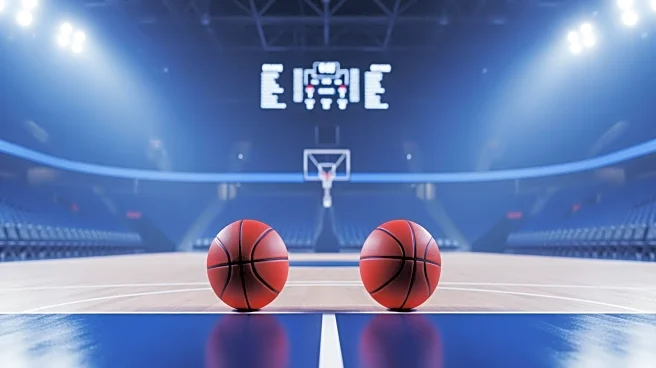What's Happening?
Utah and Weber State are set to renew their in-state basketball rivalry for the first time since 2019. The Wildcats will travel to Salt Lake City to face the Utes on Saturday. Historically, Utah leads the series 27-14, with a strong home record of 17-3
against Weber State. Utah coach Alex Jensen emphasized the significance of the game for Weber State, noting the potential for an upset. Utah recently secured an 84-75 victory over San Jose State, with Iowa transfer Seydou Traore contributing significantly with 23 points, four steals, and two blocks. Weber State also opened their season with a record-setting 130-38 win over West Coast Baptist, showcasing their offensive and defensive prowess.
Why It's Important?
The renewal of the Utah-Weber State rivalry is significant for both teams and their fan bases. For Utah, maintaining dominance in this rivalry is crucial for their reputation as a power-conference team. Weber State, on the other hand, sees this as an opportunity to gain bragging rights and boost their season by defeating a prominent in-state opponent. The game also serves as a test for both teams early in the season, providing insights into their strengths and areas for improvement. The outcome could influence team morale and set the tone for their respective seasons.
What's Next?
Following this matchup, both teams will continue their respective seasons with the aim of building on their early successes. Utah will look to capitalize on their victory against San Jose State and further integrate new players like Seydou Traore into their lineup. Weber State will aim to maintain their momentum from their record-setting win and prove their capabilities against more challenging opponents. The game could also impact recruiting efforts, as a strong performance may attract prospective players interested in joining a competitive program.
Beyond the Headlines
The renewal of this rivalry highlights the cultural and historical significance of in-state matchups in college sports. Such games often foster community engagement and local pride, drawing attention to regional athletic programs. Additionally, the rivalry underscores the competitive nature of college basketball, where smaller programs like Weber State can challenge larger, more established teams, potentially leading to unexpected outcomes and shifts in the college basketball landscape.
















